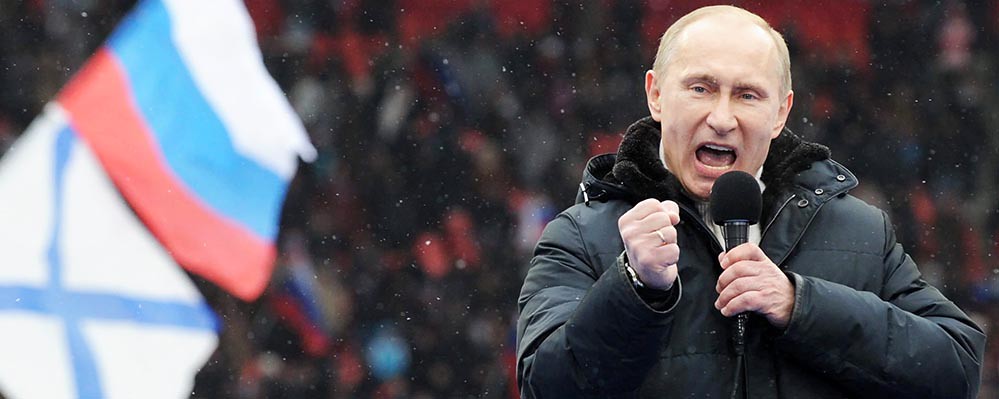The EU accuses Russia of terrorism: this is how the Spanish parties voted in this resolution
This Wednesday, the European Parliament adopted a resolution that rightly accuses Russia of being a State promoter of terrorism.
A resolution passed with an overwhelming majority
The resolution was adopted by an overwhelming majority, with 494 votes in favour, 58 against and 44 abstentions. The approved text can be read here. The text talks about the Russian invasion of Ukraine and notes that the invaders "have conducted indiscriminate attacks against residential areas and civilian infrastructure, have killed thousands of Ukrainian civilians and carried out acts of terror throughout the country targeting various elements of civilian infrastructure such as residential areas, schools, hospitals, railway stations, theatres, and water and electricity networks."
The text also recalls that "the Russian armed forces and their proxies have committed summary executions, abductions, sexual violence, torture and other atrocities in newly and previously occupied territories of Ukraine, including the massacres of civilians in cities and towns such as Bucha, Irpin, Izium and Lyman, the deliberate attack on a theatre in Mariupol, which killed hundreds of people, and the attack against the Kramatorsk railway station, which killed 60 civilians."
The EU denounces that Russia has already attacked more than 60,000 civilian facilities in Ukraine
The resolution reviews the figures of Russian atrocities in Ukraine: "the Russian Federation has already launched more than 4 000 missiles against Ukraine and shelled the country more than 24 000 times, including from the territory of Belarus; whereas Russia’s missile, drone and artillery strikes have damaged or destroyed 60 982 civilian infrastructure facilities across Ukraine to date, including 42 818 residential buildings and houses, 1 960 educational institutions and 396 medical institutions, 392 cultural and 87 religious buildings, and 5 315 water and electricity facilities."
Likewise, the resolution affirms that "the actions undertaken by Russian and proxy forces fit the definition of terrorism accepted by the EU, the UN Security Council and the UN General Assembly", and recalls that the Parliaments of Lithuania, Latvia, Estonia, Poland and the Czech Republic, the Parliamentary Assembly of the Council of Europe and the Conference of Specialized Bodies on European Affairs have already adopted resolutions declaring Russia a terrorist state or promoter of terrorism.
The resolution calls for an international isolation of Russia
For all these reasons, the resolution "recognises Russia as a state sponsor of terrorism and as a state which uses means of terrorism." In addition, calls on the Union and its Member States "to take action to initiate a comprehensive international isolation of the Russian Federation, including with regard to Russia’s membership of international organisations and bodies such as the United Nations Security Council, and to refrain from holding any formal events on the territory of the Russian Federation; calls for diplomatic relations with Russia to be reduced further and for contacts with its official representatives at all levels to be kept to the absolute minimum necessary; calls on EU Member States to close and ban Russian state- affiliated institutions, such as the Russian Centres for Science and Culture and Russian diaspora organisations and associations, which operate under the auspices and leadership of Russian diplomatic missions and promote Russian state propaganda around the world."
This is what the Spanish parties voted for
The votes cast by each MEP can be seen in this PDF (page 19). This is what the different parties voted for:
- In favor: PP, PSOE, Vox, Ciudadanos, PNV and Junts.
- Against: the MEP of Anticapitalistas (who appeared on the Podemos lists).
- Abstention: one of the MEPs from Podemos and one MEP from ERC.
- The following did not participate in the vote: Izquierda Unida, Catalunya en Comú and the BNG, one of the MEPs from Podemos and an ERC deputy.
As can be seen, the Spanish extreme left has openly distanced itself from the resolution. They are practically the same ones who refused to condemn the Russian invasion of Ukraine at the beginning of March in the European Parliament. They do not stop portraying themselves as the puppets of the Kremlin in Spain.
---
Photo: Yuri Kadobnov/AFP.
|
Don't miss the news and content that interest you. Receive the free daily newsletter in your email: Click here to subscribe |
- Most read
- The brutal 'touch and go' of a Lufthansa Boeing 747 at Los Angeles Airport
- The real reason for Sánchez's victimizing letter using his wife as an excuse
- The Pegasus case and how it could end with Pedro Sánchez due to a decision by France
- The ruins of the old Yugoslav radar station at Gola Plješevica, Croatia
- Portugal confirms that it has begun its transition to the F-35 and indicates bad news for Spain
- The ten oldest national flags in the world that are still in use today
- The interior of the Statue of Liberty torch and the sabotage that canceled its visits

 ES
ES





Opina sobre esta entrada: